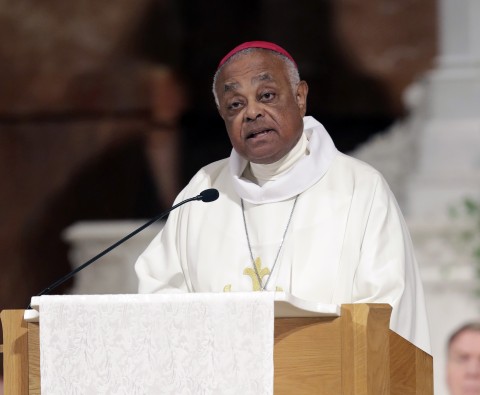Wilton Gregory to lead Catholic archdiocese of Washington, D.C.
Gregory helped navigate the church’s response to the 2002 sexual abuse scandals—including new policies and norms to address it.

Wilton Gregory, 71, archbishop of Atlanta, will be installed May 21 as head of the influential Archdiocese of Washington, D.C., the first African American in the role.
“Archbishop Gregory will be able to identify with and compassionately serve all of the people of this archdiocese, who represent very diverse ethnic, cultural and social backgrounds,” said Bishop Roy E. Campbell, an auxiliary bishop in Washington and a fellow member of the body of black Catholic bishops in the United States, in a statement.
The appointment appeared geared toward setting a new tone of accountability on the revived sexual abuse crisis that has roiled the church since last year. As president of the United States Conference of Catholic Bishops from 2001 to 2004, Gregory helped navigate the church’s response to the 2002 sexual abuse scandals and oversaw the formation and implementation of new policies and norms to address it, such as the Dallas Charter and the USCCB’s Essential Norms. He also participated in a working group tasked with formulating methods for holding high-level clerics accountable.





